In the podcast HorseGrooms recently aired with Laura Kraut‘s head groom Margo Thomas, Thomas shared some of her grooming methods regarding equine skin care. Two of her go-to products can be found at most local grocery stores: apple cider vinegar and coconut oil. Thomas spoke about giving the horses ACV baths, what she called a “very old-school eventing” thing, and about using coconut oil to moisturize the horse’s skin.
We received a question from one of our followers on how to exactly use apple cider vinegar and coconut oil on the horse’s skin and how much. We reached out to Thomas and to former eventing top groom Courtney Carson, who is the current U.S. coordinator of the International Grooms Association (IGA) to learn more about these skin care treatments.
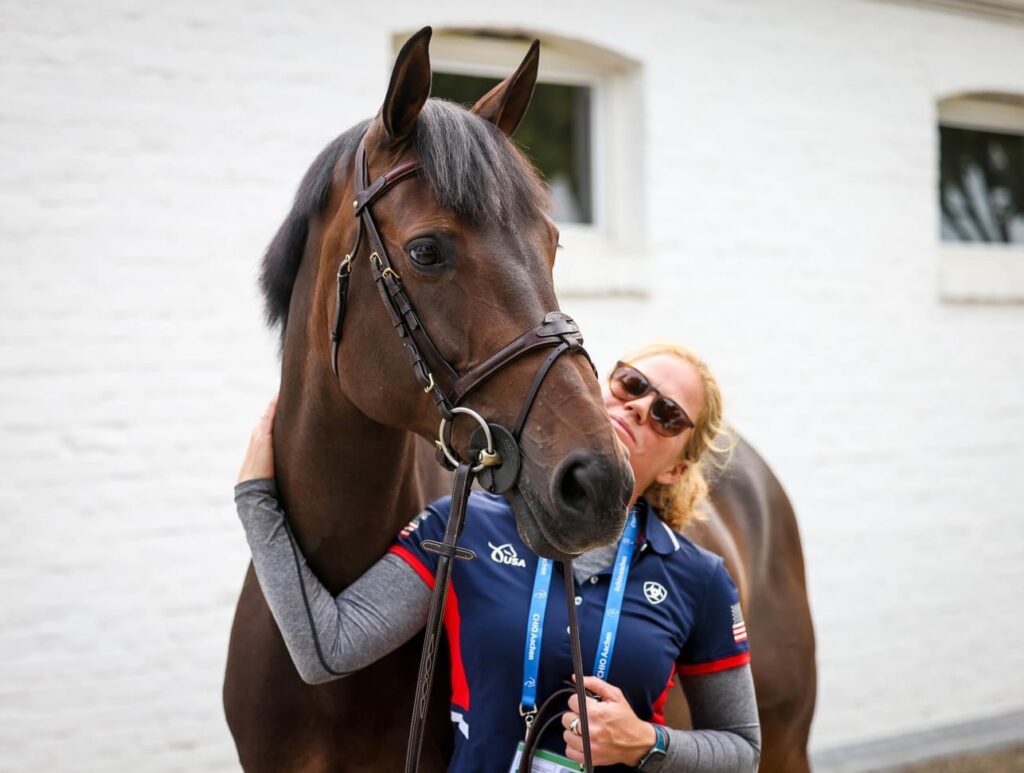
Margo Thomas 🇺🇸
The Apple Cider Vinegar Method
“Eventers are riders that really use apple cider vinegar baths. It’s old-school eventing. Apple cider vinegar is very good for moisturizing the horse’s skin. It helps lower the pH in a horse’s coat that may be causing a dry, dull appearance.
It’s an astringent in the same way that witch hazel is, meaning it tightens tissue, and can be used to reduce irritation and soothe itchiness. I use witch hazel topically also as a rinse or with warm water for hot toweling. Both help remove oil and have antimicrobial properties and can help keep fungus or skin irritations from developing.
You can use apple cider vinegar, diluted with water, and witch hazel separately or together in a spray bottle as a mist on a horse after a bath or directly on areas of irritation such as hives or a mosquito bite. The ratio of apple cider vinegar and water is like one or two cups of vinegar in a spray bottle or in a small bucket of water.”
Coconut Oil for Rubs
“I use coconut oil as a moisturizer and to add a bit of a shine to the horse’s coat. I usually use coconut oil like lotion on dry spots or healing wounds to keep the horse’s skin moisturized. I will also add coconut oil to warm water with a cup of apple cider vinegar as a rinse for after spraying a horse off on a day I don’t want to use soap. Coconut oil, I find, is good for moisturizing. When you towel them off, it kind of helps bring the dirt to the surface.
Then, if you’re not giving them a soapy bath, I’ll use coconut oil as well. That’s my thing. I use coconut oil for dry skin, for spur rubs, any sort of rubs to try and moisturize their hair to grow back. I use coconut oil a lot.”
Why You Should Use Something that Is Not Soap?
“I find that the vinegar and the coconut oil help keep their hair from drying out or getting sunburned, especially in Florida. It’s another option; something to put on them that’s not soap that’s going to keep their hair healthy. I’ll do that once a week if I can. Especially at the shows if I don’t want to be bathing them constantly to keep a bit of a shine in their coat.
If you’re in the Netherlands, because it can be quite chilly, sometimes I don’t bathe anything or rinse or wash any legs. Sometimes I also do a bit of hot toweling with coconut oil or Dettol.”
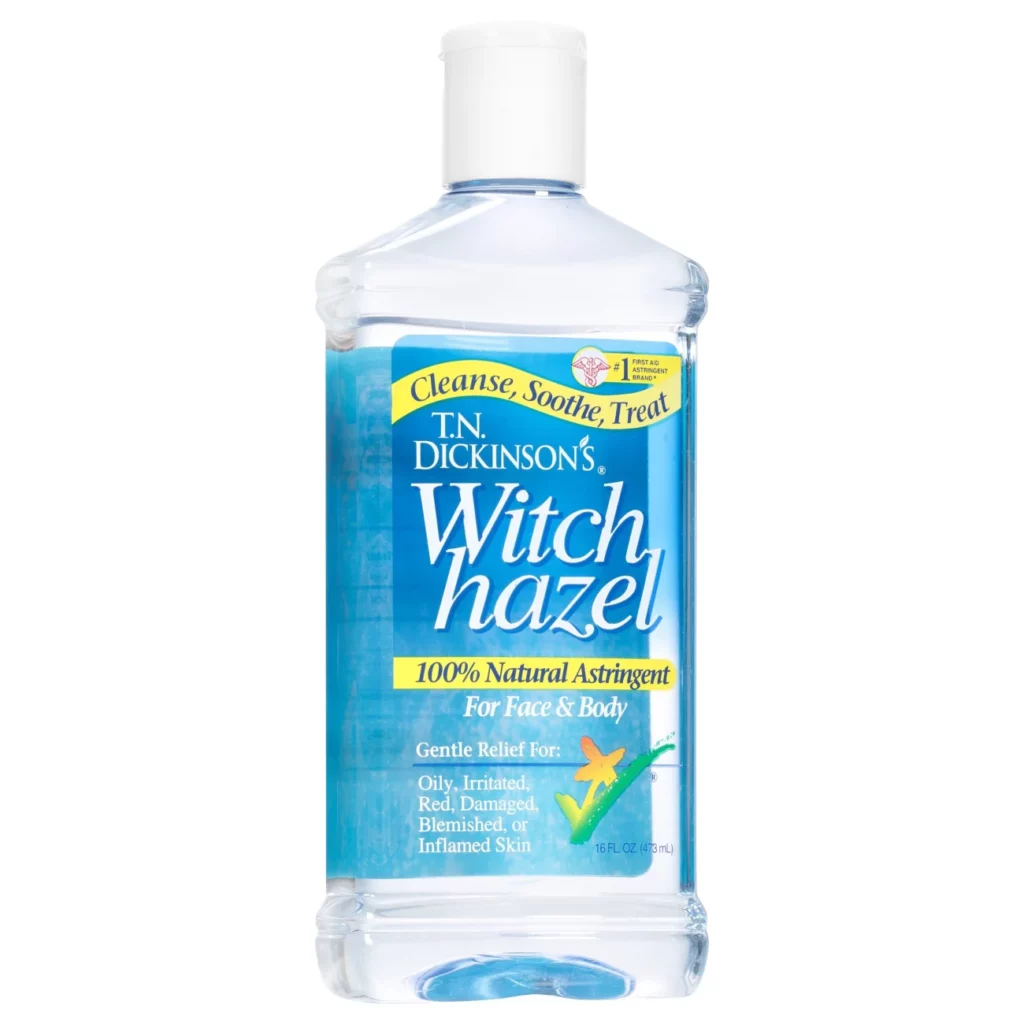
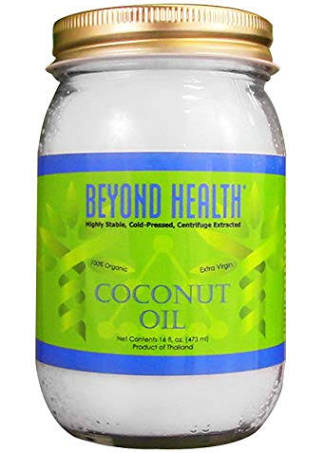
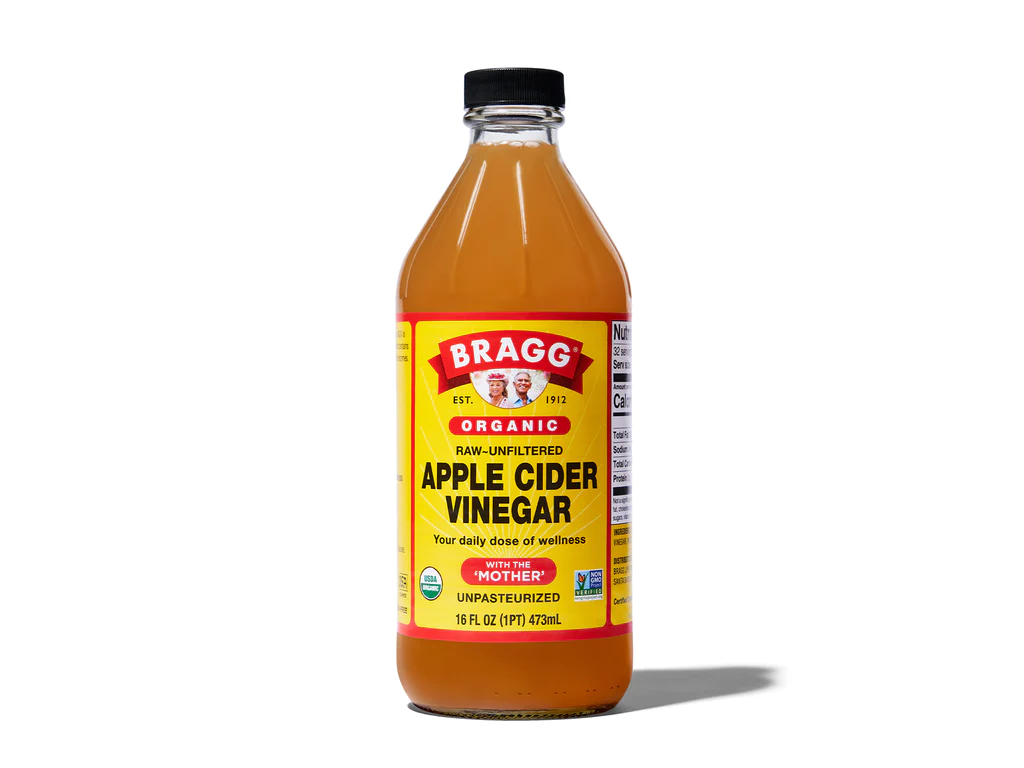

Courtney Carson 🇺🇸
Although Courtney Carson is currently taking a break from practical grooming and instead is focusing on her work for the International Grooms Association (IGA) and contributing to HorseGrooms, she has a lifetime of experience as a rider, stable manager, and groom. In those decades, apple cider vinegar, coconut oil, and witch hazel were also some of the go-to products for Carson and below she explains how, when, and why she would use them.
How to Use Apple Cider Vinegar?
“ACV has anti-bacterial, anti-viral, antiseptic, and anti-fungal properties, making it a very valuable item to have in the barn. ACV has many uses; it is best to dilute down with water.
When to Use Witch Hazel?
- If your horse suffers from hives, apple cider vinegar is the first thing I grab. It has a soothing feel along with anti-itch properties that help get the horse relief and stop the itching. Dilute in a bucket of water and give a sponge bath.
- Apple cider vinegar can be used as a bug repellent. Dilute into a spray bottle (about ¼ cup of ACV for a gallon of water will work) and use.
- This spray can also be used on hooves to help treat thrush. Pick out the foot and make sure it is clean and dry before applying directly.
- Spray directly onto the mane or tail to prevent horses from scratching and rubbing their hair out.
- You can also use ACV when washing barn laundry– wraps, saddle pads, etc. The apple cider vinegar will help remove soap residue and dirt that could be harsh to sensitive horse’s skin.”
“Witch hazel is a natural antihistamine and anti-inflammatory liquid that has many uses in the barn.
- Witch hazel will help remove stains from the coat– apply to a sponge or spray directly onto the body and then use a towel or a bit of water to rub the stain out.
- Witch hazel can be used following work to help remove sweat and dirt post ride.
- Because of the anti-inflammatory properties it can be used as a natural liniment– use a spray bottle and apply to legs before wrapping, apply directly to the back, etc.
- Witch hazel can also be directly applied to bumps, hives, etc., to help provide relief for hives and bug bites.”
Tricks with Coconut Oil
“Coconut oil is antimicrobial so it can be used to treat wounds. It is a natural product that will fight infection on cuts and scrapes.
- Coconut oil works as a conditioner– take a generous amount and work it into the mane and tail, let sit, and then wash out for a rich, silky mane and tail. I would recommend doing this treatment a couple of days before a show if you’re planning to braid.
- If you are in an area with ticks and have yet to find a way to keep them 100% off of your horse, applying a small dab of coconut oil to the bite spot after removing the tick will help sooth the area and prevent infection.”
“Did You Know” Rubbing Alcohol Tricks
“Rubbing alcohol is a skin antiseptic, evaporates faster than water, and is a topical rubefacient.
- Rubbing alcohol can be used as a brace under wraps— apply some directly to the skin and rub in until dry. Wrap over the top and this will help reduce inflammation.
- Because it evaporates faster than water, this is an ideal product to use when cooling out horses. During the winter when you cannot bathe, rubbing alcohol can be sprayed onto the horse (or a towel to be used for the head/face) and then curried to help remove sweat and dirt and dry faster.
- In the hot summer months, rubbing alcohol can be diluted in water to help evaporate the water off of the horse faster, which will aid in cooling.
- Mixing rubbing alcohol with a bit of Quic Silver (or any stain removing shampoo) can then be applied directly to a tough stain and scrubbed/washed out.
- Mixing rubbing alcohol with witch hazel (equal parts) into a spray bottle (I add a small bit of baby oil for a bit of shine), shake that up and apply before currying– this will help lift dirt from the coat and treat the skin with the antihistamine of the witch hazel, giving your horse a healthy coat and will help keep them from getting dandruff, especially in the winter months.”
Featured photo courtesy of Shelley Paulson Photography.
Want to read more expert guidance from seasoned grooms about getting started, advancing your career, or honing your craft? Ask us any grooming questions in the comments below or on social media!
Be sure to also subscribe to our monthly round-up of new articles and resources so you never miss a thing!
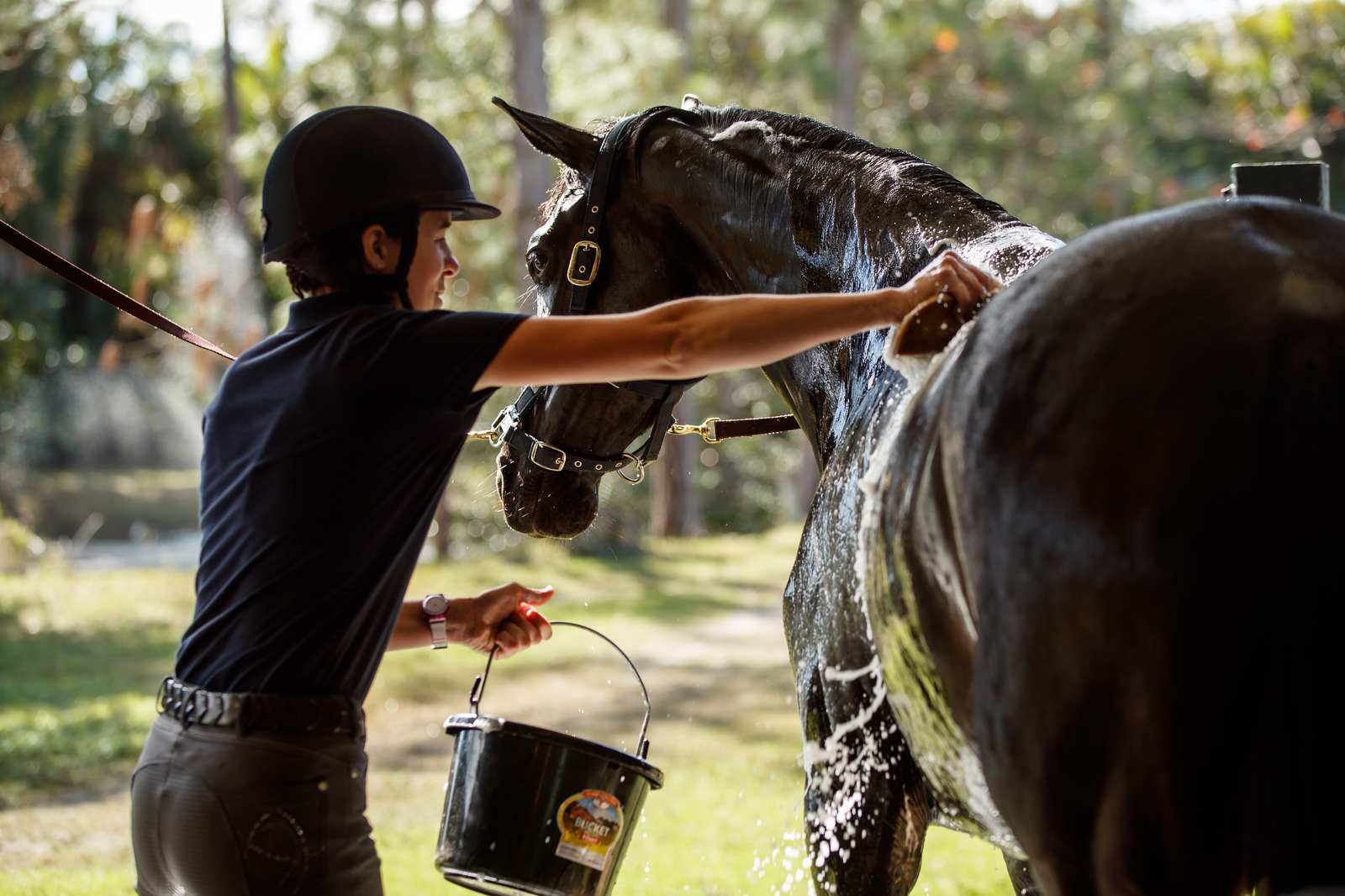

Great tips! I will use them all! Thank you!!!